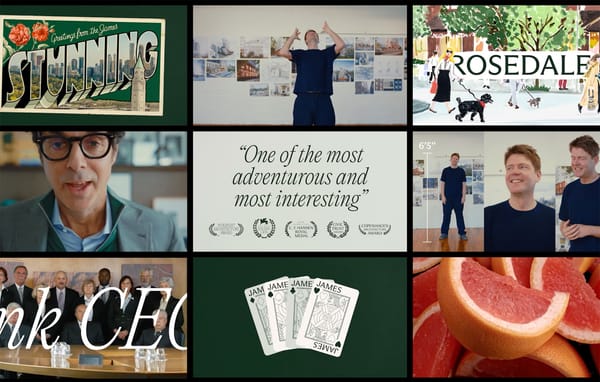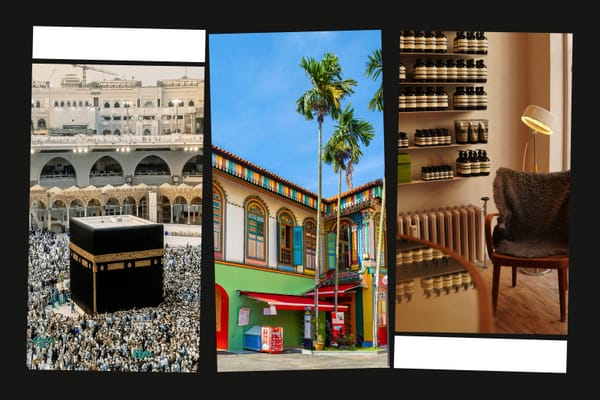The Fault in Our Stars
On the distressing implications of Richard Florida’s “meta cities”
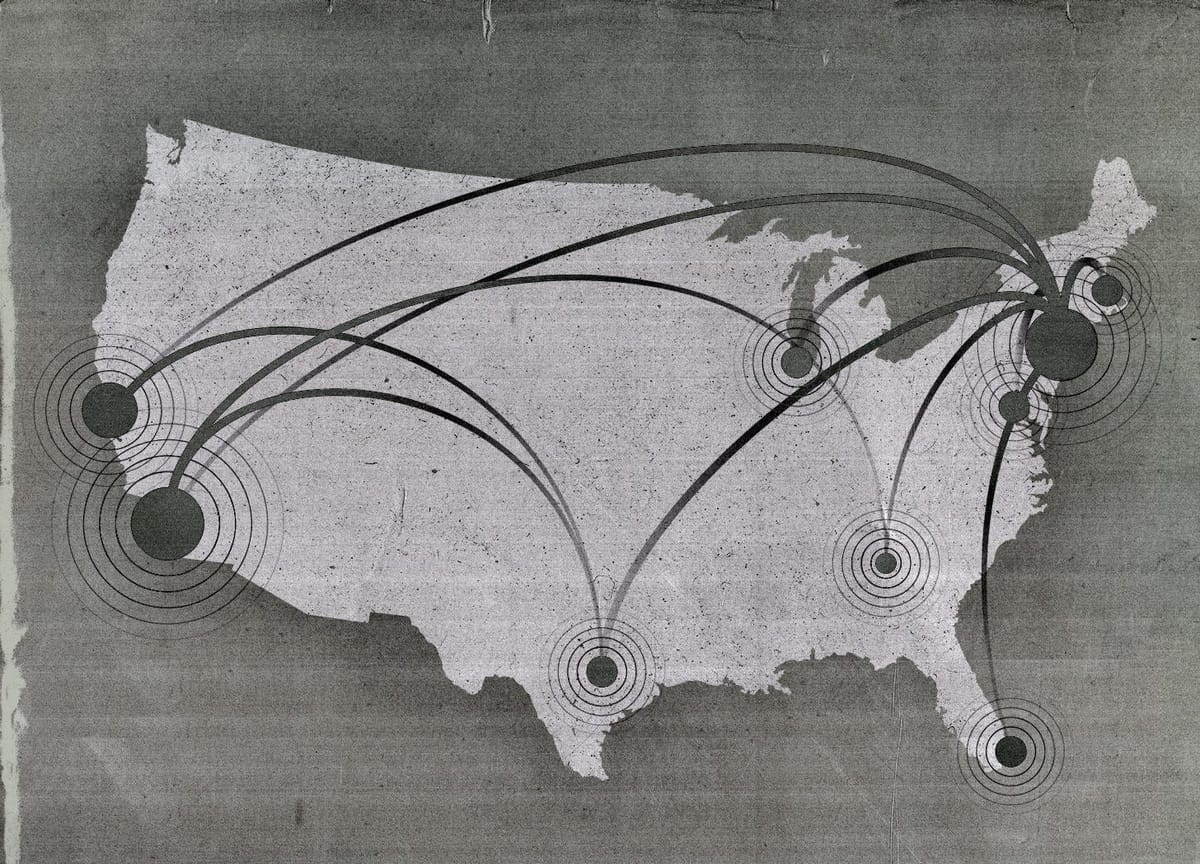
Hi everyone,
This week’s podcast interview with art collector and patron Kenneth Montague caps our first season. These conversations are so filled with insight that next year I want to talk with even more people about the ideas and ideals behind their inspiring work.
We also want your input on year two of Frontier Magazine. Will you give me an additional 3–5 minutes of your time and fill out this short survey? In doing so, you’ll be entered to win one of three copies of the last printed edition of Frontier Magazine, on the theme of darkness. It’s a beautiful design object with great stories—and a little LED light embedded into the cover!
Below, some thoughts on a new essay by urban theorist Richard Florida, a new book by Craig Mod, the second in our series of Frontier Products, and our usual roundup of good links.
Love all ways,
Brian
The Fault in Our Stars
Last week, Richard “creative class” Florida and three coauthors from the Boston Consulting Group published an article in Harvard Business Review that coins a new term: The Meta City. They argue that new digital technologies are expanding the boundaries of our largest cities. Now, in addition to cities stretching along transit lines or highways into suburbs, remote-work capabilities create a new digital hinterland unconstrained by geography.
One implication is that “superstar” cities will only grow in economic importance, no matter the infrastructural or demographic changes they undergo. The “flows and connections” that characterize meta cities mean that superstar cities, like London and New York, can benefit from social and economic activity in secondary urban centers.
At their spiciest, Florida and his colleagues suggest “Miami is a satellite of New York” and “Austin is … a satellite of the San Francisco tech complex.” Those of us who are terminally online will recognize these umbilical relationships. We were subjected to Miami’s “crypto mayor” in 2021. There are enough new arrivals in Austin that the city’s “astonishing transformation” got the New Yorker treatment earlier this year.
Because Florida and his coauthors are writing to an audience of executives deciding upon corporate real-estate portfolios, the lived experience of these cities goes unmentioned. They note increased specialization, suggesting some places become “centers for working” while others are “centers of living.” The New York Times reported yesterday on a new study that shows “the ranks of millionaires” have come surging back into New York City, while “lower- and middle-income New Yorkers”—a disproportionate number of them Black and Hispanic—“are heading for the exits.” Those millionaires aren’t making New York a “center for working,” at least not in the way the newly displaced families did.
Instead, as Drew Austin has argued, New York is increasingly a center of consumption “fueled by retail, tourism, and entertainment.” (We also discuss this in our Frontier Magazine Podcast conversation.) In passing, the HBR story admits as much: Companies’ “hub locations in superstar cities” increasingly “function as flagship spaces, akin to flagship retail stores, that build a brand and attract talent.”
Florida, commenting on the Times’s millionaires story, said, “My guess is this is true of every other large, significant global city—NY, London, San Francisco, LA, Toronto, and Miami.” Each of those cities features in his HBR article. The open question remains: What kind of urban experience does the meta city create? If the trends Florida identifies are true, will superstar cities use the economic and social energy of their “digital hinterlands” to further transform into playgrounds of the rich? In time, will we even recognize them as “urban”?
☆ A little more: designer and writer Elizabeth Goodspeed, writing about New York’s creative scenes, latches onto a similar idea, noting how the city’s social microcosms “find themselves repeated online”: “The New York hustle goes global.”
Books Become Other Books
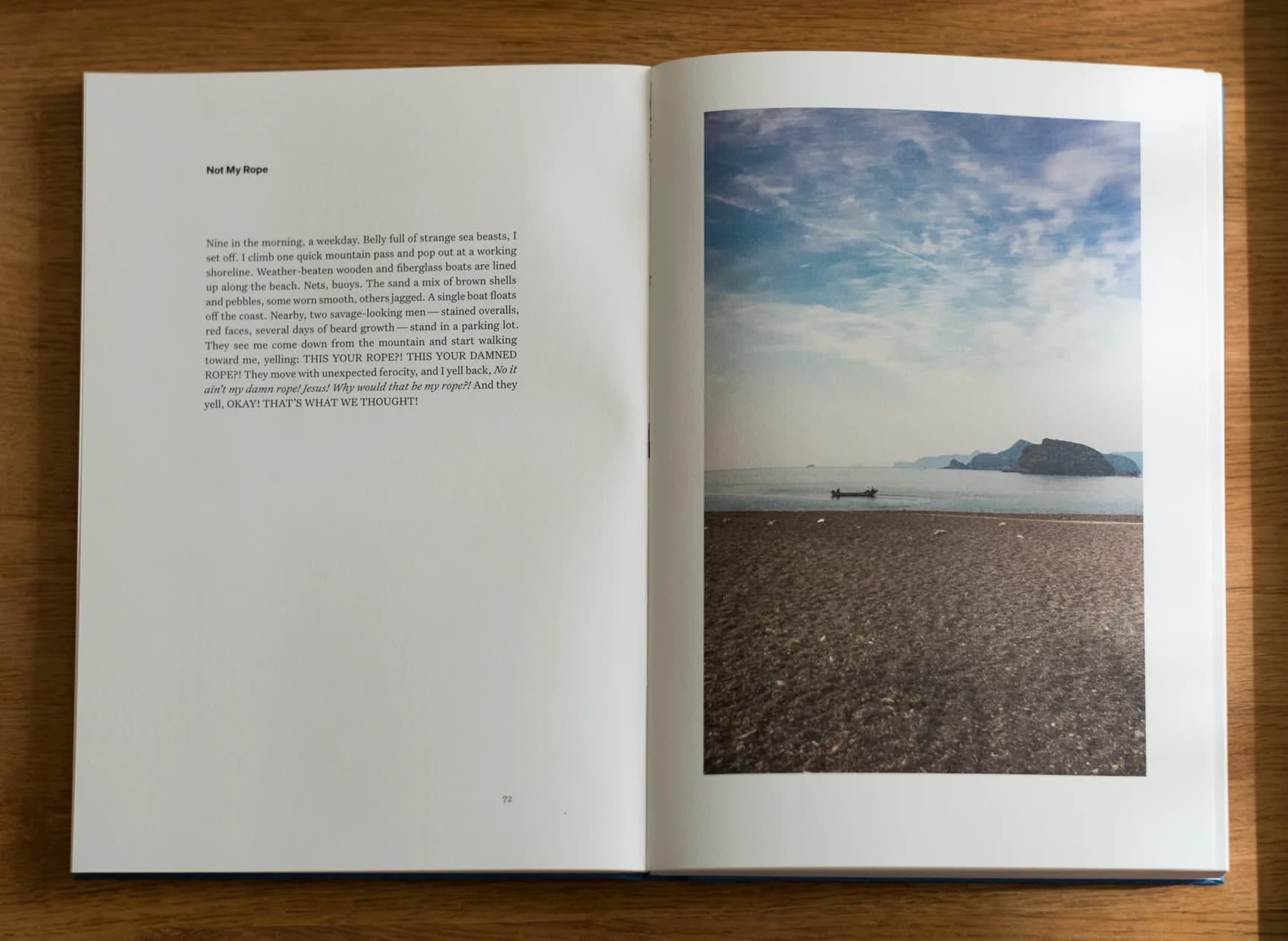
For more than a decade I’ve enjoyed American writer and photographer Craig Mod’s stories about walking, Japan, and the people he meets while walking in Japan. Two weeks ago he launched the preorder for his latest book, Things Become Other Things, which weaves together solo wanderings through his adopted home and the story of a childhood friend who was murdered soon after they graduated high school.
Mod is known for designing and then working closely with local printers on his publications; every testimonial I’ve seen celebrates the craftsmanship of his books alongside the stories told within them. This time, however, there’s a fascinating wrinkle: Mod is selling what he calls the “fine art edition” of Things Become Other Things, and in 2025 Random House will publish a trade edition of the same story.
As he put it in a newsletter announcing the deal: “Here is my gut feeling: Both editions will sing. They are not competitors. They are complimentary. They will symbiotically elevate one another. I want to prove that this sort of deal is beneficial to everyone involved. I want it to be a template for future deals. I want us all to win.” As someone interested in independent media but, like Mod, still attached to traditional publishing, I too hope this succeeds. With more than a thousand preorders already, he’s off to a great start.
Beyond his own writing on the book, I also recommend Mod’s recent Longform Podcast appearance.
Frontier Products: Soft Services
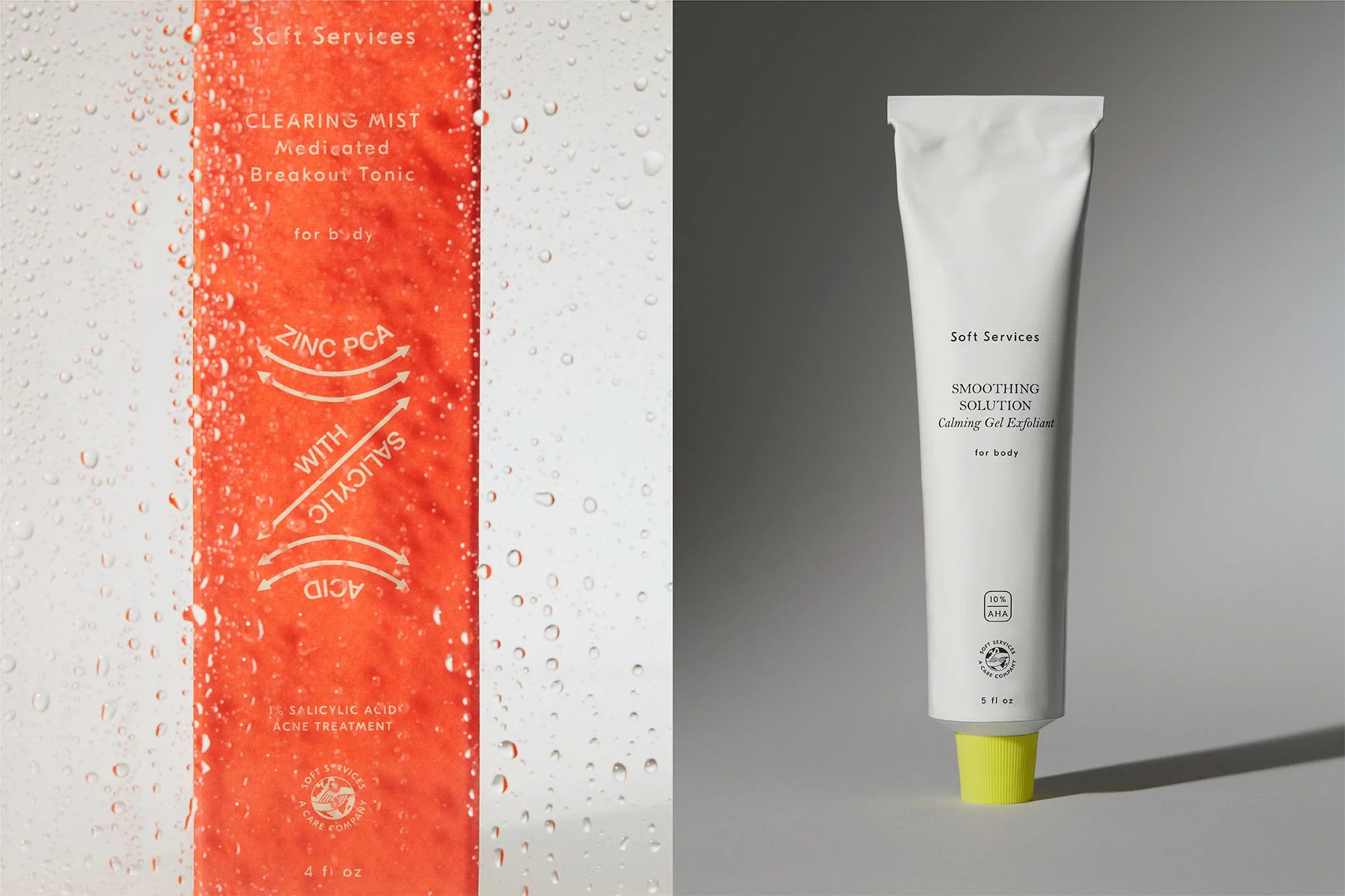
Frontier Products highlights well-designed, durable, people- and/or Earth-friendly items that demonstrate how to marry purpose and performance.
Soft Services, launched in 2021 and based in New York City, makes body skincare products. Founded by two Glossier alums, the company explicitly aims to solve problems left unaddressed by a skincare market focused on the face, all while providing “information, guides, and other tools to help people.”
We appreciate the focus of its product line; its commitment to recycling and reuse, with step-by-step instructions and fully recyclable shipping materials; and its “elastic” brand design (by Decade), which both introduces visual variety and cuts down on printed waste. “Rebecca [Zhou] and I wanted to create just as exciting of an unboxing experience” as DTC competitors, noted cofounder Annie Kreighbaum in a 2022 interview. “We didn’t want to come out of the gate saying that we were a sustainable brand. We just wanted to do really cool stuff that was more sustainable and wouldn’t create as much waste.”
Visit Soft Services.
🔗 Good links
- 📝 Hyperglot, an “open-source toolkit built around a database of language orthographies.” You can see how 774 different languages are written!
- 🌆 “Land banking in Atlanta and community solar in New Orleans offer a roadmap for embedding reparative politics in city policies.”
- 🗳️ “We have good choices available to us regarding the companies to which we give our business.” Duke University Libraries votes with its software purchasing power.
- 💰 “By almost every financial metric, the lump sum group did better than the monthly payment group”: on the world’s biggest basic income experiment.
- 😍 Loving this “ghost edition” of the Freewrite Traveler, a portable, distraction-free writing tool


